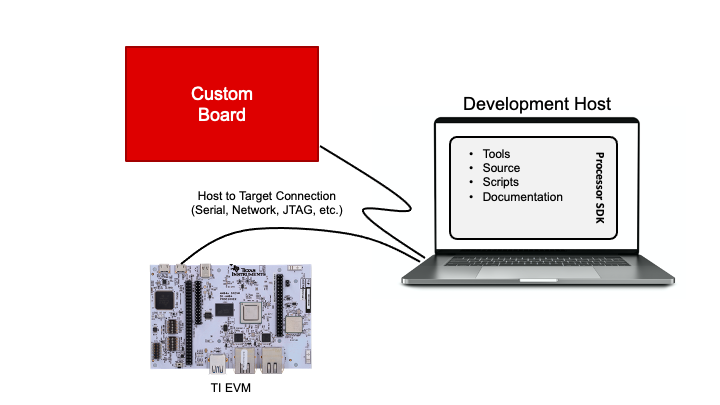3. Develop Linux on TI EVM¶

This Academy module focuses on the Linux development that can be performed using a TI EVM. This module builds on the Evaluating Linux module.
The Linux development environment is similar for all types of hardware. Thus, many software features can be developed on a TI EVM even before the custom hardware board is ready. The differences between the available TI boards and the target system will dictate how much software development can be done without custom hardware.
Some software requires features that are not enabled on TI EVMs. In that case, new custom hardware must be developed before the software can be validated. Once new hardware comes into the picture, the exciting task of porting Linux to a custom platform can begin. The porting process is discussed in module Porting Linux to Custom Hardware.
For example, if the target system uses networking, software above the network interface (eth0, eth1, etc.) can usually be developed on TI boards as most TI boards have network interfaces. This hardware abstraction is one of the benefits of Linux, and allows software development to overlap hardware development to shorten total system design timelines.
The rest of this module describes how to set up a good development environment. This environment will enable users to make changes to the SDK components (U-Boot, Linux, etc.). This environment also enables the development of application code like a simple “Hello World” and beyond.

